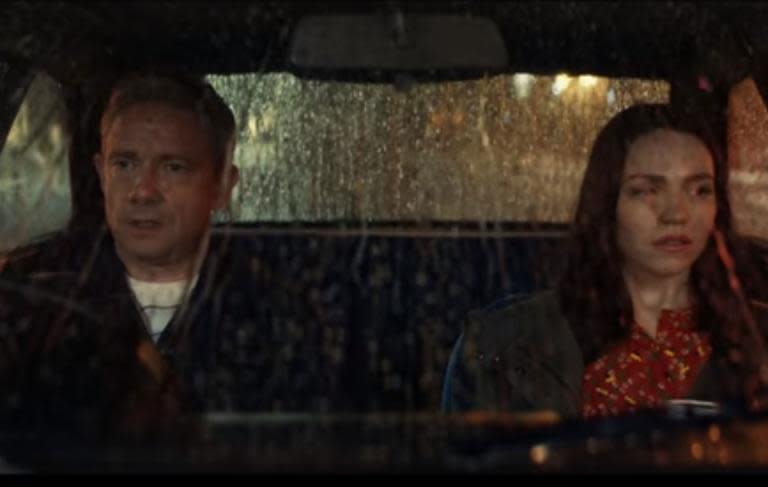Vodafone 'breakup' ad with Martin Freeman banned for misleading consumers
A Vodafone advert has been banned for misleadingly implying that customers can leave a phone contract with the company at any point.
In the ad, which aired on television screens in July, the actor Martin Freeman appeared to be breaking up with a partner before it was revealed he was actually looking to leave his mobile phone provider.
His character in the ad said: “I haven’t got the strength to keep arguing with you,” before a voice-over said: “Breaking up’s never easy but, unlike other networks, Vodafone has a 30-day service guarantee, so if you don’t love us, you can leave us.”
Eleven viewers complained to the Advertising Standards Agency (ASA) that the wording was misleading because it did not make clear that customers could only cancel in the first 30 days of a new deal.
The ASA said the ad gave the impression that Freeman’s character was wanting to leave a contract that had been in place for some time, but the service guarantee acted as a 30-day cooling-off period.
The ASA said: “After that point, consumers would face those same difficulties in trying to leave their contract with Vodafone, and whilst we acknowledged Vodafone’s reference to the small print which referred to the terms and conditions on the website, we did not consider that this altered the impression presented by the ad.
“Therefore, because the ad implied that consumers were entitled to exercise the guarantee at any time and that was not the case, we concluded that the ad was misleading.”
Ad clearance agency Clearcast said Vodafone wanted to highlight that their service guarantee was for 30 days, whereas others only offered 15 days, and said Freeman’s portrayal was to emphasise frustrations that could be felt with other providers not giving customers enough time to decide whether their contract was right for them.
Vodafone said guarantees commonly worked by allowing a customer to try a service for a period of time at the beginning of a contract, and consumers were familiar with the concept.
A Vodafone spokesman said: “We already make clear that the 30 days is from the start of a customer’s contract in our terms and conditions, and will also make sure this is totally clear in our marketing.”

 Yahoo Finance
Yahoo Finance 

